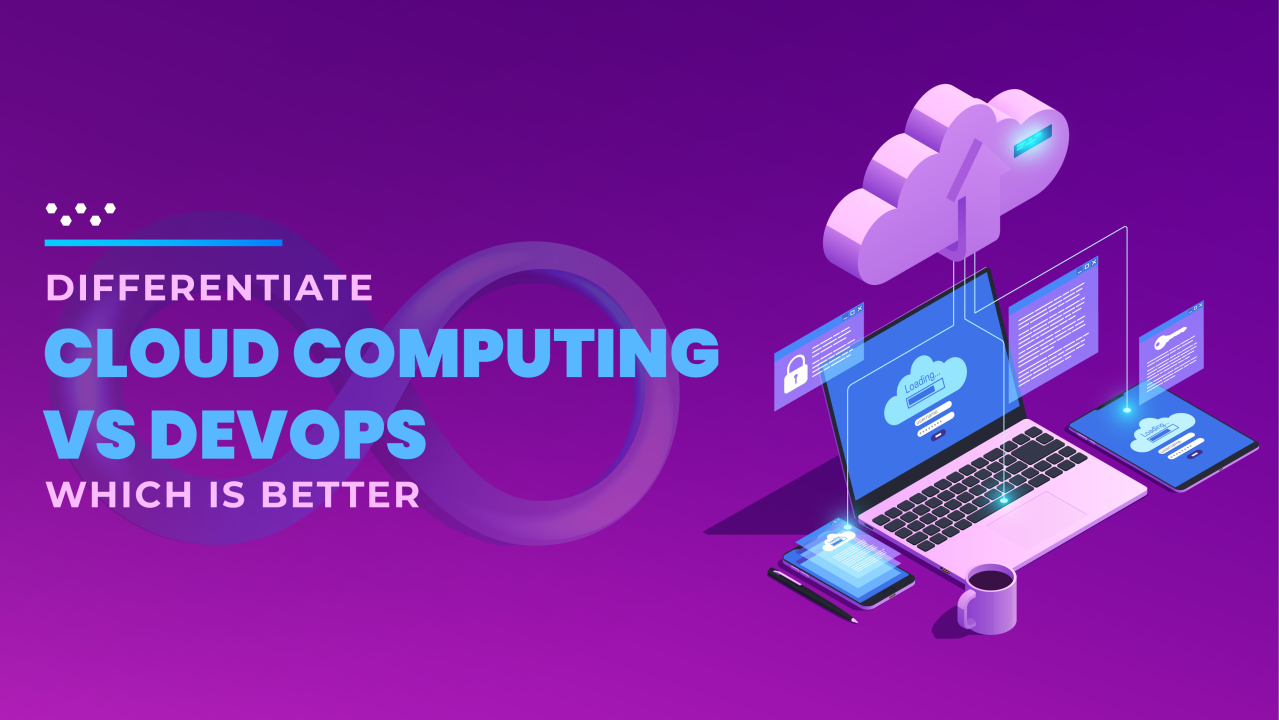Cloud Computing and DevOps Engineering Explained: An Easy Guide
 Nahid
Nahid
In today’s tech world, Cloud Computing and DevOps Engineering play crucial roles in how applications are developed, deployed, and maintained. They both drive efficiencies and innovation in IT processes but have distinct focuses and functionalities.
What is Cloud Computing?
Cloud computing is a technology that allows users to access and store data, applications, and resources over the internet, rather than on a local hard drive or private servers. It enables businesses to scale and manage their resources on demand, without the need for extensive on-site infrastructure.
Types of Cloud Computing
Infrastructure as a Service (IaaS): Provides virtualized computing resources over the internet, like virtual machines, storage, and networks. Examples include Amazon Web Services (AWS) and Microsoft Azure.
Platform as a Service (PaaS): Supplies a platform allowing customers to develop, run, and manage applications without dealing with the infrastructure. Google App Engine and AWS Elastic Beanstalk are popular PaaS solutions.
Software as a Service (SaaS): Delivers software applications over the internet on a subscription basis. Users can access these apps directly without worrying about installation or maintenance, such as Google Workspace or Salesforce.
Function as a Service (FaaS): Also known as serverless computing, where developers can run small pieces of code (functions) without managing the underlying servers. AWS Lambda and Azure Functions are common FaaS tools.
How Cloud Computing Works
Cloud computing works through a network of servers that host, store, and manage data. It employs virtualization, where a single physical server is divided into multiple virtual servers. This process provides users with isolated environments that appear like individual servers.
The cloud provider manages the backend infrastructure, security, and data storage. Users connect to cloud services via the internet and can scale resources up or down based on their needs, paying only for what they use.
Key Technologies and Tools in Cloud Computing
AWS: Offers extensive cloud services, including compute, storage, and database solutions.
Azure: Microsoft’s cloud platform provides IaaS, PaaS, and SaaS options with strong integration with Microsoft products.
Google Cloud Platform (GCP): Known for its data analytics and machine learning capabilities.
VMware: Provides virtualization solutions for both private and public clouds.
What is DevOps Engineering?
DevOps is a culture, set of practices, and a role aimed at bridging the gap between software development and IT operations. DevOps Engineering involves implementing automation and collaboration tools that streamline the software delivery process from development through to deployment and beyond.
Types of DevOps
Continuous Integration (CI): Involves automating the merging of code changes from multiple contributors into a shared repository several times a day. This helps detect and resolve conflicts early.
Continuous Delivery (CD): Extends CI by automating the deployment of code changes to production or staging environments, ensuring smooth and reliable updates.
Infrastructure as Code (IaC): Manages and provisions infrastructure using code, making infrastructure setup repeatable and consistent. Terraform and Ansible are popular IaC tools.
Monitoring and Logging: Tracks application performance and logs events in real time to catch potential issues before they affect users. Tools like Prometheus and Grafana are used for monitoring.
How DevOps Engineering Works
DevOps brings together development and operations teams to work collaboratively throughout the software lifecycle. DevOps Engineers use CI/CD pipelines that automate code testing, integration, and deployment, reducing human error and speeding up the process. Automation tools manage infrastructure, deploy code, and monitor applications, making operations faster and more reliable.
By integrating continuous feedback mechanisms and automated testing, DevOps ensures quick problem resolution and frequent updates without service interruptions.
Key Technologies and Tools in DevOps
Jenkins: A widely used CI/CD tool for automating tasks.
Git: A version control system used for managing code changes.
Docker: Helps create, deploy, and run applications in containers, ensuring consistency across different environments.
Kubernetes: Manages containerized applications across a cluster of machines, ideal for microservices.
Ansible: Provides automated configuration management, deployment, and orchestration.
How Cloud Computing and DevOps Work Together
Cloud computing and DevOps complement each other, as the cloud provides the scalable infrastructure necessary for DevOps practices. For example, using cloud-based CI/CD pipelines allows developers to continuously deploy applications on the cloud, making DevOps processes faster and more flexible. Container orchestration with tools like Kubernetes on cloud platforms further enhances efficiency, enabling microservices architecture and auto-scaling.
Why They’re Important
Cloud Computing: Reduces hardware costs, provides scalability, and enables remote access to applications, making it highly cost-effective and accessible.
DevOps Engineering: Enhances collaboration, accelerates development, and ensures high-quality, consistent software delivery. It promotes a shift-left approach, where testing and quality checks are done early, ensuring a more reliable end product.
Subscribe to my newsletter
Read articles from Nahid directly inside your inbox. Subscribe to the newsletter, and don't miss out.
Written by

Nahid
Nahid
I am Mozahidul Islam Nahid, an engineer driven by a passion for continuous learning and growth. With six years of diverse professional experience. Which includes one year as DevOps engineer and four and a half years as administration and procurement specialist. Now I am dedicated to advance my career in DevOps engineering and cloud engineering.I am particularly passionate about server management and ongoing maintenance of websites post-deployment and I aspire to be a crucial part of these essential tasks for any company . Thank you!